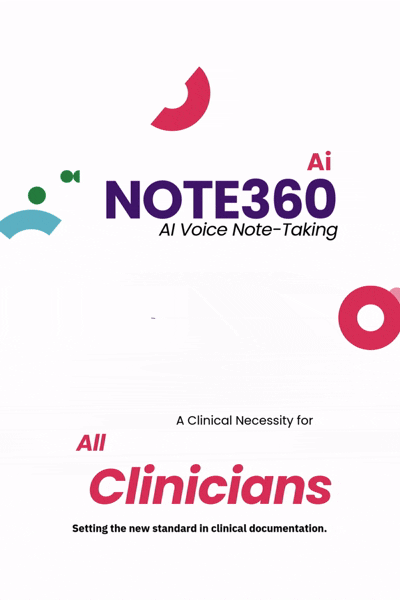In today’s healthcare landscape, clinicians are inundated with administrative tasks, particularly documentation, which detracts from direct patient care. Studies indicate that for every hour of patient interaction, physicians spend nearly two additional hours on electronic health record (EHR) tasks, contributing significantly to burnout and reduced job satisfaction.
The Burden of Documentation
Physician burnout is a pressing issue, with documentation demands being a primary contributor. A study by the American Medical Association found that pairing primary care physicians with a scribe resulted in a 26.8% reduction in reported burnout. Physicians also experienced a decrease in EHR time by up to 66 minutes per eight-hour clinic day, primarily due to reduced note-writing time. PubMedPubMed+2American Medical Association+2Becker’s Hospital Review+2
The Promise of AI-Powered Scribes
Artificial Intelligence (AI) has emerged as a transformative solution to alleviate the documentation burden. AI-powered medical scribes can reduce documentation time by up to 62% during clinic hours and 76% after hours, allowing clinicians to focus more on patient care.
Introducing Note360: Designed by Clinicians, for Clinicians
Note360 stands out as an AI scribe application developed by a practicing clinician, ensuring it addresses the real-world challenges faced by healthcare professionals. By capturing patient-physician interactions and generating comprehensive clinical notes, Note360 streamlines the documentation process while maintaining accuracy and compliance.
Key Benefits of Note360
- Time Efficiency: Clinicians using AI scribes like Note360 can save up to 3.2 hours per day on documentation tasks, translating to increased productivity and the ability to see more patients. Health Management
- Enhanced Accuracy: AI-driven documentation reduces errors by up to 70% compared to traditional methods, ensuring more comprehensive and accurate records.
- Reduced Burnout: By automating administrative tasks, AI scribes help decrease physician burnout, with reports indicating a 61% reduction in documentation-related stress.
- Improved Patient Interaction: With less time spent on note-taking, clinicians can maintain better eye contact and engagement with patients, leading to a 22% increase in patient satisfaction scores related to physician attentiveness.
- Cost-Effectiveness: Implementing AI scribes can lead to significant financial savings, with practices reporting a return on investment within 3-6 months due to increased patient volume and reduced administrative costs.
Conclusion
Incorporating AI-powered tools like Note360 into clinical practice offers a promising solution to the documentation challenges faced by healthcare providers. By enhancing efficiency, accuracy, and patient engagement, Note360 empowers clinicians to focus on delivering high-quality care while mitigating burnout and administrative burdens.
Sources:
- Scribes linked to 27% lower burnout rate in primary care | American Medical Association American Medical Association+1ScribeAmerica+1
- AI Scribes: Enhancing Medical Efficiency and Reducing Burnout | HealthManagement.org Health Management
- Analysis: AI scribes save physicians time, improve patient interactions | Permanente.org Permanente Medicine
- Ambient artificial intelligence scribes: physician burnout and perspectives on usability and documentation burden | PubMed Healthcare Chief+2PubMed+2




